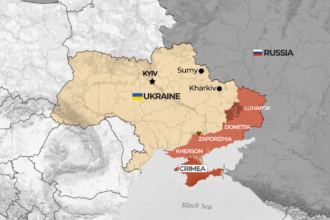Washington, D.C. – Breaking News
In a decisive ruling with far-reaching constitutional implications, a federal judge has blocked the Trump administration from enforcing an executive order aimed at ending birthright citizenship for children born in the United States to non-citizen parents. The decision comes amid a class-action legal challenge and is being hailed as a major victory for civil rights and constitutional protections.
Background: Executive Order Challenged
The executive order, announced during Donald Trump’s presidency, sought to reinterpret the 14th Amendment of the U.S. Constitution, which guarantees citizenship to “all persons born or naturalized in the United States.” The administration argued that the clause should not apply to the children of undocumented immigrants or temporary visa holders, claiming it encouraged “birth tourism” and unauthorized migration.
Legal scholars, immigration advocates, and civil liberties organizations immediately criticized the order as unconstitutional. Multiple lawsuits were filed, culminating in a consolidated class-action suit brought before the U.S. District Court for the District of Columbia.
The Ruling
Judge Eleanor Griffin, a federal judge appointed during the Obama administration, issued the injunction on Friday, halting the enforcement of the executive order nationwide. In her opinion, Judge Griffin stated that “the Constitution’s language, historical interpretation, and settled case law offer no support for the notion that the executive branch may unilaterally redefine the meaning of birthright citizenship.”
She emphasized that any change to birthright citizenship would require a constitutional amendment—not an executive order. “Executive power is not absolute, particularly when it collides with the clear text of the Constitution,” Griffin wrote.
The judge’s ruling is preliminary, meaning it blocks enforcement of the executive order while the legal case continues. However, legal experts suggest the order may now face an uphill battle to survive judicial review.
Reaction from the Legal Community
Legal experts across the political spectrum have weighed in on the ruling. Professor Harold Kim of the Georgetown University Law Center called the decision “a necessary reaffirmation of constitutional boundaries.” He added, “Regardless of one’s views on immigration, changing something as foundational as birthright citizenship must go through the appropriate legal channels.”
Immigration advocacy groups, including the ACLU and National Immigration Law Center, praised the decision as a defense of fundamental American values. “Today’s ruling protects millions of American children and reaffirms that the Constitution is stronger than any executive overreach,” said NILC spokesperson Angela Rivas.
Trump’s Legal Team Responds
Attorneys representing former President Trump and his administration have vowed to appeal the ruling. In a statement released shortly after the decision, Trump’s legal team argued that the executive branch has “broad authority to enforce immigration law and protect the integrity of citizenship.”
They also expressed concern over what they described as “judicial activism that overrides national sovereignty.”
What’s at Stake
The case is widely seen as a litmus test for the scope of executive power and the resilience of the 14th Amendment in modern times. Birthright citizenship, established in the 1868 amendment following the Civil War, has been a longstanding pillar of American immigration and civil rights policy.
If the Trump administration’s interpretation had been upheld, it could have stripped U.S. citizenship from millions of children and set a precedent allowing future administrations to reinterpret constitutional provisions through executive orders.
Looking Ahead
The case will likely be appealed to the U.S. Court of Appeals and potentially the Supreme Court. For now, the injunction ensures that all children born on U.S. soil, regardless of their parents’ immigration status, continue to be recognized as American citizens.
In her concluding remarks, Judge Griffin underscored the gravity of the issue: “To question who is and is not a citizen based on executive preference rather than constitutional principle undermines the very fabric of American democracy.”
As the legal battle continues, the outcome of this case may shape the future of immigration law, constitutional interpretation, and executive authority for years to come.










